Biology Curriculum Committee
Our purpose is to ensure the biology curriculum at all educational stages is as relevant as possible and prepares students for their next steps in life – whether they go on to study biology at university, use biology in a related career or use their biology knowledge as non-scientist citizens of the 21st century.
The Curriculum Committee's terms of reference are to:
- develop the Society's content criteria for biology qualifications
- consider and provide guidance and information on appropriate assessment models for biology qualifications
- advise on the Society's responses to external consultations on curriculum, qualification and assessment matters
- advise on the biology content of related science qualifications
- advise the Society's ESP Committee on any matters associated with the biology curriculum
Evolving 5-19 Biology
In November 2021, the Royal Society of Biology published Evolving 5-19 Biology; recommendations and framework for 5-19 biology curricula, which was developed by the Biology Curriculum Committee.
Members of the Biology Curriculum Committee
- Professor Dudley Shallcross OBE FRSB - current chair
- Professor Jeremy Pritchard CSciTeach FRSB
- Dr Andrew Chandler-Grevatt MRSB
- Liam Cini O'Dwyer
- Kathy Freeston MRSB
- Kathryn Horan
- Dr Carys Farrell Hughes CSciTeach MRSB
- Dr Shaista Shirazi
- Mark Brannan
- Rachel Davies
- Elizabeth Lupton
- Daniel Jenkins FRSB
- Henry Ward
- Dr Claire Pike FRSB
- Dr Natalie Vlachakis MRSB
- Helen Watson
- Dr Jonathan Weston MRSB
- Professor Bethan Wood CBiol FRSB
- Helen Woodfield
Past Members of Curriculum Committee:
Professor Libby John FRSB (previous chair)
Professor Berry Billingsley
Dr Mike Cassidy FRSB
Dr Nick Dixon
Professor Stuart Ferguson
Ann Fullick MRSB
Beverly Ann Goodger MRSB
Dr Dawn Hawkins
Dr Mark Kerrigan FRSB
Dr Jennifer Koenig
Professor Mariann Rand-Weaver FRSB
Dr Alistair Moore MRSB
Rev Professor Michael Reiss CBiol FRSB
Elana Segalini-Bower MRSB
Observers
Arianne Matlin MRSB
Lauren McLeod MRSB
Shabana Brightley MRSB
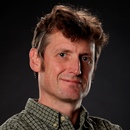 Jeremy Pritchard is a senior lecturer in biology. His research at Birmingham University focuses on plants and aphids and he has previously researched plant interactions with their environment in the USA, New Zealand and Europe. Jeremy is also actively involved in diverse teaching, covering topics from field biology and ecology through plant biology to evolution.
Jeremy Pritchard is a senior lecturer in biology. His research at Birmingham University focuses on plants and aphids and he has previously researched plant interactions with their environment in the USA, New Zealand and Europe. Jeremy is also actively involved in diverse teaching, covering topics from field biology and ecology through plant biology to evolution.
Jeremy is involved in communicating science and evolution to schools and the public, and has developed resources to help educators and learners at all levels. He is director of education for the college of life and environmental sciences at the University of Birmingham and chairs the Royal Society of Biology Education Training and Policy (ETP) committee.
He speaks on outreach and public understanding of science policy issues nationally (e.g. ASE, BSF, Wellcome Trust Science Engagement) and has a strong interest in developing policy collaborations with other learned societies internationally, acting as consultant on a range of teaching and education issues.
Within the School of Biosciences Jeremy is an admissions tutor for biology and runs a range of schools liaison activities from years 5 – 13 and CPD for teachers, aiming to help public understanding of science and also facilitate progression across the secondary – tertiary boundary.
 Andrew Chandler-Grevatt is a Senior Lecturer in Science Education at the University of Brighton. He has a degree in Biological Sciences and an MSc in Crop Production in the Changing Environment. He then became a secondary school Science teacher for just over a decade, eventually specialising in formative assessment of Science. Andy completed his doctorate in 2010 on formative assessment in Key Stage 3 Science. Since then Andy has been working in Initial Teacher Education, and has become an author and editor for secondary school Science materials.
Andrew Chandler-Grevatt is a Senior Lecturer in Science Education at the University of Brighton. He has a degree in Biological Sciences and an MSc in Crop Production in the Changing Environment. He then became a secondary school Science teacher for just over a decade, eventually specialising in formative assessment of Science. Andy completed his doctorate in 2010 on formative assessment in Key Stage 3 Science. Since then Andy has been working in Initial Teacher Education, and has become an author and editor for secondary school Science materials.
He is also the curriculum editor for Smart Activate by Oxford University Press. Andy has been on committees for Ofsted Science Curriculum, Oxford Curriculum Group and the Association for Science Education 11-19 Committee and is a Chartered Science Teacher (CSciTeach). He has also worked on assessment projects overseas including Canada, Kazakhstan and China.
Andy has a passion for learning and teaching about the organisms that live in moss and uses ‘Moss Safari’ as a vehicle for outreach education to primary and secondary schools, as well as for trainee teachers, experienced teachers and science technicians.
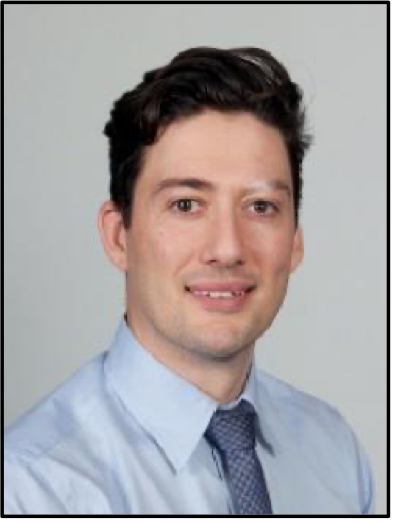
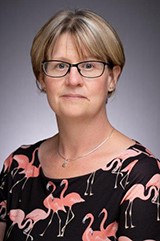
Kathy Freeston has been teaching for 20 years and is currently the lead teacher for A level at East Leake Academy in Nottinghamshire. She brings her intrinsic enthusiasm for biology to this role and is motivated by succeeding in getting students excited about the complexities of the natural world. As part of the team behind @ChatBiology on Twitter Kathy brings current biological news stories to her classroom and the wider teaching community to enable students to step into the shoes of a biologist so they can really understand how science develops because of collaborative research. Kathy enjoys tackling misconceptions and creating innovative methods and models to unpick these and build a depth of understanding. Alongside her interest in the substantive knowledge of biology Kathy allows her teaching to be guided by the science of learning and the research into cognitive load.
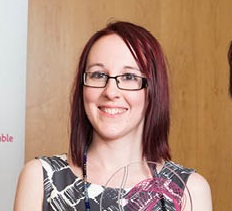

Kathryn Horan is a Chartered Science Teacher (CSciTeach) with eleven years experience, currently working at Pudsey Waterloo Primary School in Leeds. She is also an independent primary science education consultant with extensive experience facilitating teacher training, including for ITT, and directly supporting teachers and senior leadership teams. In recent years, Kathryn’s particular interests include links between science and literacy teaching and developing a love of and respect for the natural environment in pupils.
Kathryn is a college fellow of the Primary Science Teacher Trust and an active member of the Association for Science Education, currently in role as the chair of the Yorkshire and Humber Regional ASE Committee. She is an assessment specialist for Cambridge Assessment International Education and also works as a Primary Science Quality Mark Hub Leader, supporting schools through the developmental PSQM process.
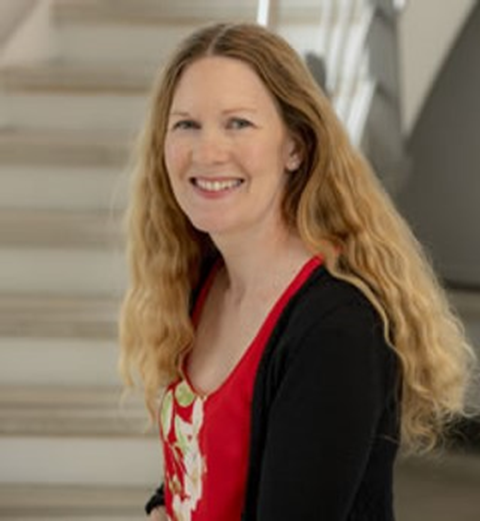
Carys Hughes is a Senior Teaching Fellow in the Southampton Education School (University of Southampton). She has a degree in Animal Science and a PhD in Equine Behaviour. Subsequently she trained as a secondary school Science teacher, teaching in a variety of schools for 10 years. During her secondary school teaching career she was a Head of Science and specialised in teaching science to pupils with SpLD. Following this Carys started working at the University of Southampton, leading on projects providing professional development for STEM teachers across the South Coast of England and then became a tutor on the PGCE Science programme. She is also a member of BERG and has an interest in environmental education research.
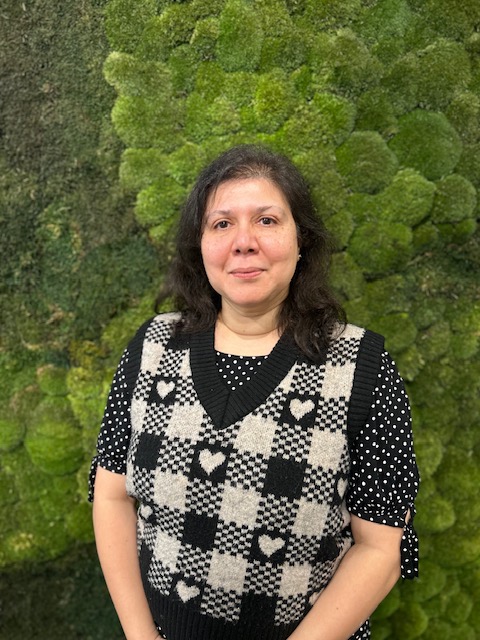 Shaista (Tara) Shirazi is a Senior Lecturer in STEM education at the University of Glasgow and is currently seconded to the Gatsby Charitable Foundation. Here she is working on a number of projects to inform policy on a range of Gatsby priorities, including the recruitment and retention of STEM teachers, regional inequalities and STEM occupations, and the development of evaluation tools for projects.
Shaista (Tara) Shirazi is a Senior Lecturer in STEM education at the University of Glasgow and is currently seconded to the Gatsby Charitable Foundation. Here she is working on a number of projects to inform policy on a range of Gatsby priorities, including the recruitment and retention of STEM teachers, regional inequalities and STEM occupations, and the development of evaluation tools for projects.
Tara's doctoral work on science subjct uptake post-16 provided insight into the challenges and opportunities of science education, shaping her commitment to making science more relevant and interesting for students. Tara has a strong background in teacher education, backed by 12 years of science teaching in a diverse range of schools in London. She has been a subject examiner in biology, authored biology sections in GCSE textbooks and workbooks, and designed biology subject knowledge enhancement courses for teacher education programmes.
 Mark Brannan has been teaching since 1997, across the full age range and ability. Mark is currently Head of Science at Hill House School in Doncaster, a 3-18 independent day school. His dual honours science degree in biology and geology allowed him to study the interactions between the physical earth and the biosphere, developing his passion for the evolution of life on earth. mark has set up a geology department at his current school, and teaches GCSE geology alongside GCSE and A level biology. He believes science education is vital to empower students to develop the knowledge and skills to help solve climate change, sustainability, health and disease, and cleaner energy.
Mark Brannan has been teaching since 1997, across the full age range and ability. Mark is currently Head of Science at Hill House School in Doncaster, a 3-18 independent day school. His dual honours science degree in biology and geology allowed him to study the interactions between the physical earth and the biosphere, developing his passion for the evolution of life on earth. mark has set up a geology department at his current school, and teaches GCSE geology alongside GCSE and A level biology. He believes science education is vital to empower students to develop the knowledge and skills to help solve climate change, sustainability, health and disease, and cleaner energy.
Mark particulary enjoys taking students on field trips and believes that learning outdoors is an important part of science to supplement practical work in the laboratory.
In addition to his teaching commitments, Mark is an experienced A level biology senior examiner and feels that the knowledge and skills he has developed in this role have benefitted his teahing practice.
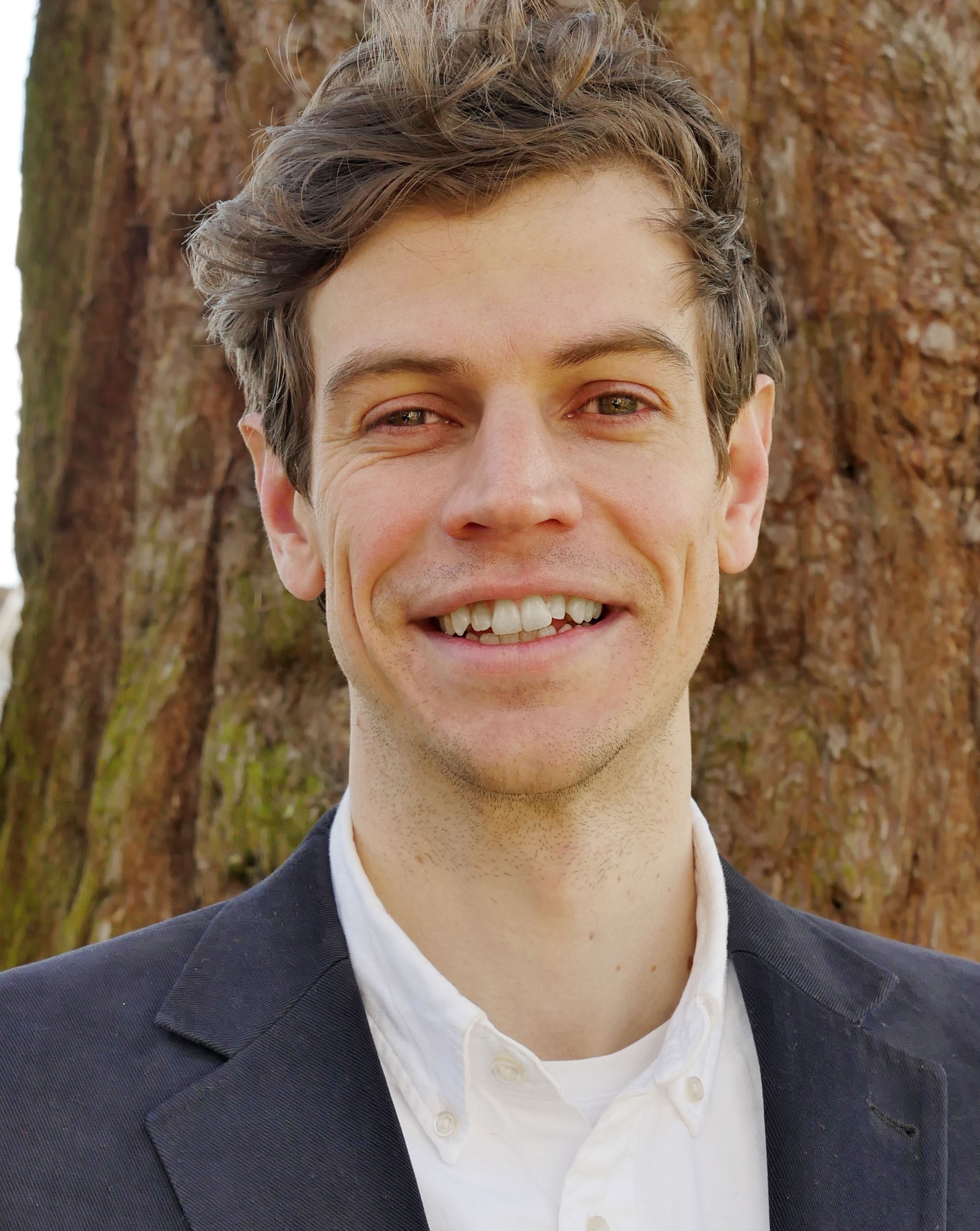 Henry Ward is a graduate in Biology from the University of Sheffield. He pursued an intergrated course encompassing zoology, plant botany, medical and cellular biology. Since graduating, he has dedicated his career to teaching biology to students aged 8-18. His journey through teaching has allowed opportunities for curriculum leadership, both within and beyond the school environment, allowing him to develop innovative curriculum frameworks and mentor fellow biology teachers. Henry is also currently studying for his PhD at Univesity College London, looking into how biology teachers develop their biological curriculums.
Henry Ward is a graduate in Biology from the University of Sheffield. He pursued an intergrated course encompassing zoology, plant botany, medical and cellular biology. Since graduating, he has dedicated his career to teaching biology to students aged 8-18. His journey through teaching has allowed opportunities for curriculum leadership, both within and beyond the school environment, allowing him to develop innovative curriculum frameworks and mentor fellow biology teachers. Henry is also currently studying for his PhD at Univesity College London, looking into how biology teachers develop their biological curriculums.
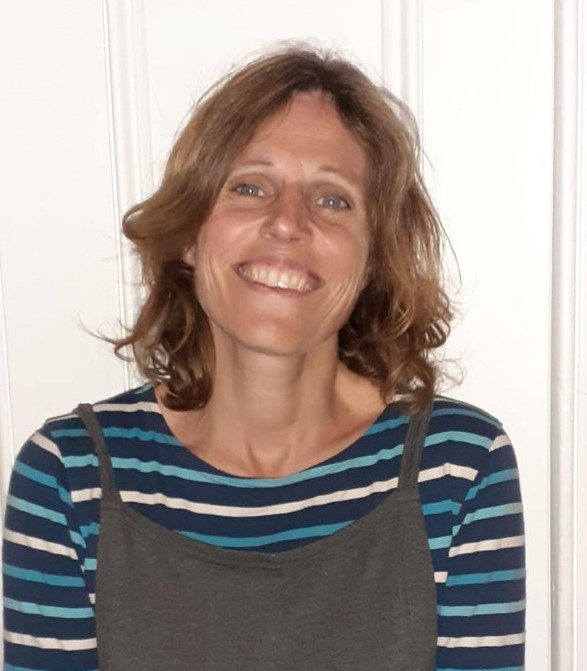 Rachel Davies has taught biology and science for 20 years, leading GCSE science and A level biology courses in inner London schools. She enjoys using her creativity to develop innovative, student-centred teaching approches and models to enrich pupils' conceptual understanding and enthusiam for biology and nature. She began working in Initial Teacher Education in 2021 and now leads the Biology PGCE course at King's College London. Rachel completed her MA Education at KCL, where her dissertation focused on the significant issues of the GCSE assessment in terms of reliability and validity as well as the backwash effects on teaching and learning. She has recently begun a doctoral research degree at KCL which explores the differential effects of educational policy on GCSE biology teaching in schools with varying socio-economic status. She is motivated by the need for excellent biology teaching for all pupils and has delivered CPD to teachers in Uganda as pat of a school partnership.
Rachel Davies has taught biology and science for 20 years, leading GCSE science and A level biology courses in inner London schools. She enjoys using her creativity to develop innovative, student-centred teaching approches and models to enrich pupils' conceptual understanding and enthusiam for biology and nature. She began working in Initial Teacher Education in 2021 and now leads the Biology PGCE course at King's College London. Rachel completed her MA Education at KCL, where her dissertation focused on the significant issues of the GCSE assessment in terms of reliability and validity as well as the backwash effects on teaching and learning. She has recently begun a doctoral research degree at KCL which explores the differential effects of educational policy on GCSE biology teaching in schools with varying socio-economic status. She is motivated by the need for excellent biology teaching for all pupils and has delivered CPD to teachers in Uganda as pat of a school partnership.
Rachel is plant passionate and enjoys motivating pupils and PGCE trainees to be excied about plants, whilst emphasising the need for increased plant literacy, particularly related to issues of climate change and sustainability. She is currently working on a project which explores the plant awareness of PGCE Science trainees. Rachel also has an interest in environmental education research and experiential learning and was involved in the Teach the Future: Campaign for Climate Education Project.
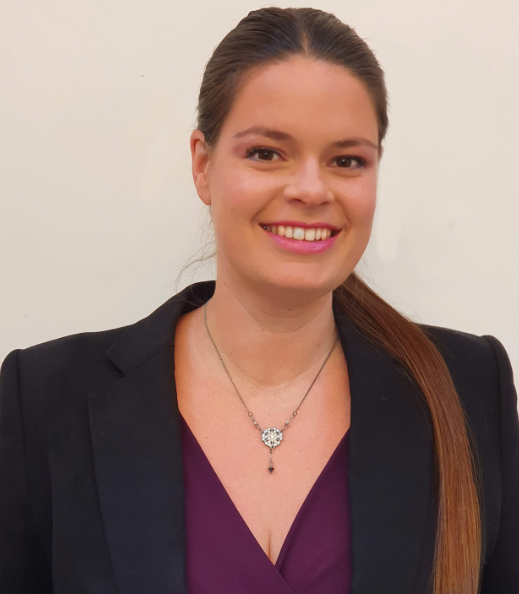
Claire Pike is Deputy Dean (Education) for the Faculty of Science and Engineering at Anglia Ruskin University. In this role, she oversees curriculum development, academic quality, student achievement and the student experience across a wide range of STEM courses and disciplines. She is passionate about the power of education to positively transform people’s lives.
Claire read Natural Sciences at the University of Cambridge, progressing to the MSci in Biochemistry and then a PhD in the field of epigenetics and transcriptional control at the Gurdon Institute. She completed a postdoctoral Research Associateship at the Hutchison/MRC Research Centre, focussing on the genetics and genomics of breast cancer.
Alongside her research work, Claire has taught for 15 years at the University of Cambridge, supervising undergraduates in the Biological Natural Sciences Tripos, directing final-year project students in the Department of Pathology, and acting as a Director of Studies for Magdalene College. She has lectured on a broad range of biomedical sciences topics in London and at Anglia Ruskin, supervises PhD students in cognate disciplines, and has played a key part in writing new degree courses, which were successful accredited. Claire is a Principal Fellow of the Higher Education Academy, and a member of the Executive Committee of the Heads of University Sciences of Biomedical Sciences.
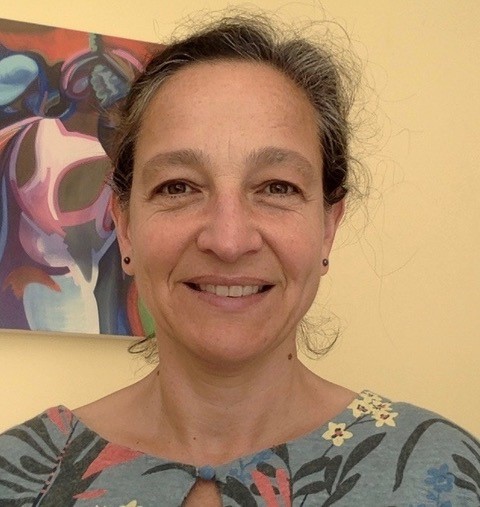
Natalie Vlachakis is a Curriculum Support Manager in science with the awarding body AQA. Prior to that, she was a science teacher for 12 years and most recently Head of Biology at an Oxfordshire comprehensive school. Her teaching experience spans comprehensive and private schools in the UK, as well as international schools in South Africa and Abu Dhabi. Natalie is interested in equity in science education, and practical strategies that increase science capital for all students. She studied Biochemistry followed by an MSc in Crystallography at Wits University (South Africa) and a PhD in Structural Genomics at Sussex University.
Helen is chairing the current review of the QAA Biosciences Benchmark Statement and also chairs the Biochemical Society’s Education, Training and Public Engagement Committee.
In her role at Plymouth, Helen teaches bioscience subjects to medical, dental and other health professions students. She is active in curriculum design, especially around transferable skills education and embedding EDI into the curriculum. She has a strong and long-standing interest in widening participation in higher education and co-leads this for the Medical School. She chairs the Schools of Medicine, Dentistry and Biomedical Science Athena Swan self-assessment team (SAT) and recently led this team through a successful Silver Athena Swan application, awarded by Advance HE in March 2022. She also co-chairs the University Athena Swan SAT.

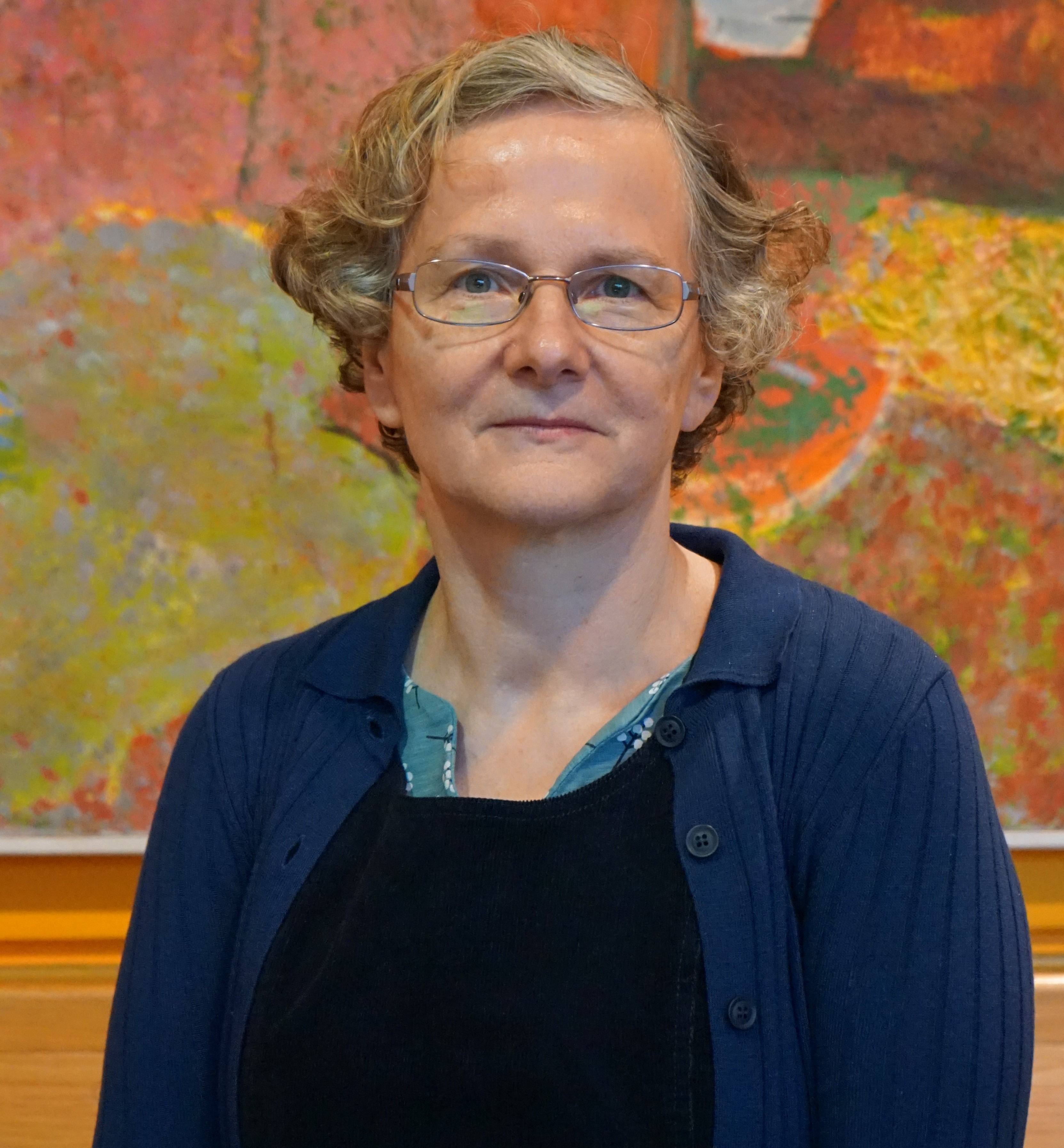
With an undergraduate degree in Zoology, a MSc in Ecology and a PhD in Agriculture, Bethan created the BSc Environmental Science and Sustainability degree at the University which she led for several years. Before joining the University, she was a secondary teacher of biology and science at a local all-through school in Dumfries and Galloway.
Bethan supervises Masters and Doctoral students at Glasgow; her most recent PhD student examined the Scottish secondary curriculum and opportunities for agricultural experiences.
Bethan is a Fellow of the Royal Society of Biology and the Linnean Society and is a Principal Fellow of the Higher Education Academy. She is an experienced External Examiner and has been a panel member on many Periodic Subject Reviews in various Universities. Bethan has also been on the Advisory Panels for two Subject Benchmark Statements.
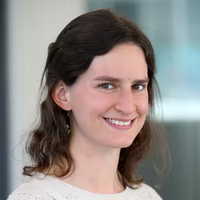
Helen Woodfield is a Teaching and Scholarship lecturer in plant sciences at Cardiff University. She is active in a diverse range of teaching, including organic chemistry, plant biology and microbiology. Helen is an experienced admissions tutor for all biosciences courses and is the year one lead for the School of Biosciences, Cardiff University. In recent years, Helen has become particularly interested in student transition into and through university. In addition to teaching, she is involved in communicating science via outreach work at public events and schools.
Helen read Natural Sciences at the University of Cambridge, and has a research background in photosynthesis (PhD, University of Cambridge) and lipid biochemistry (postdoctoral research, Cardiff University).


